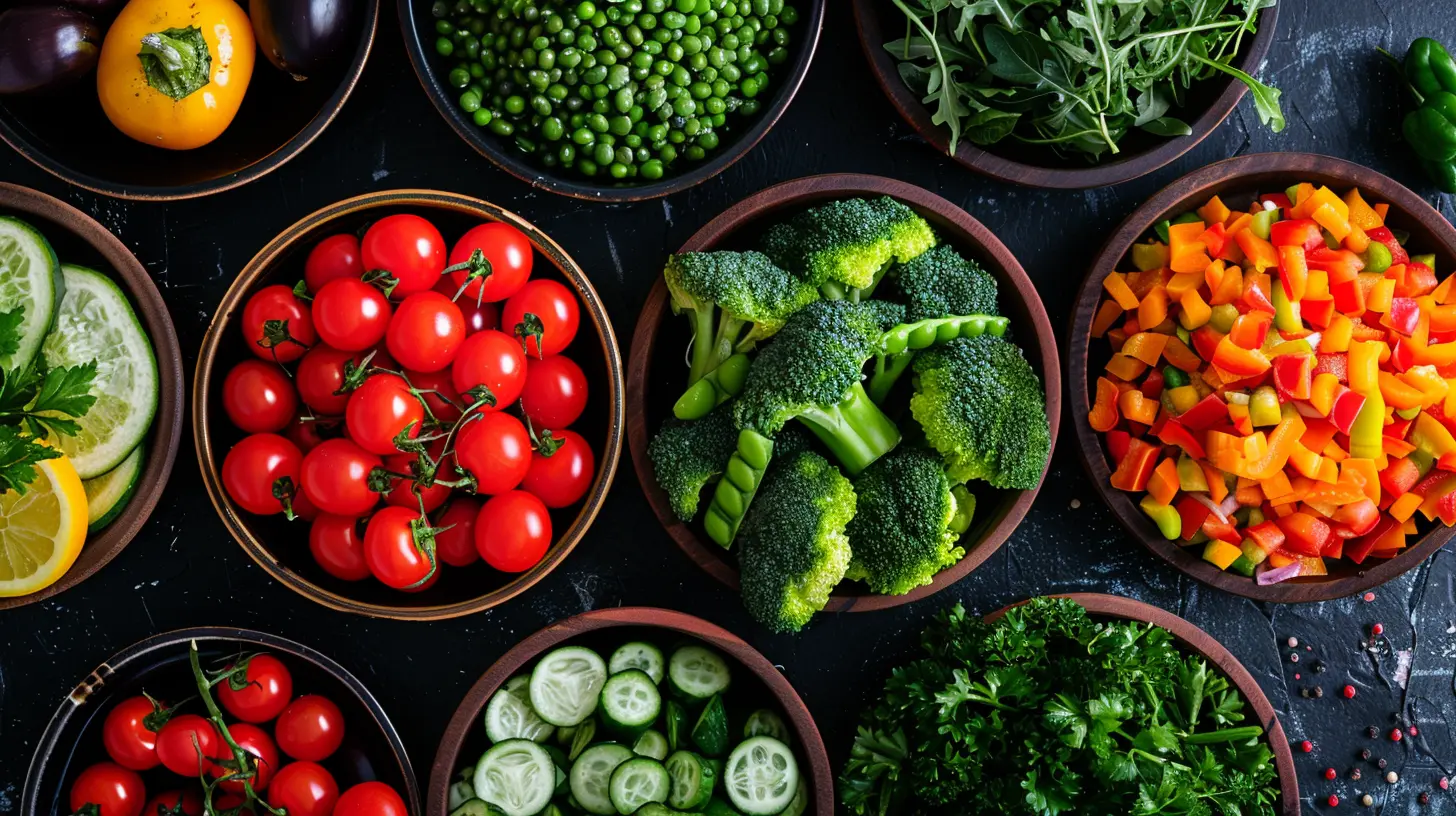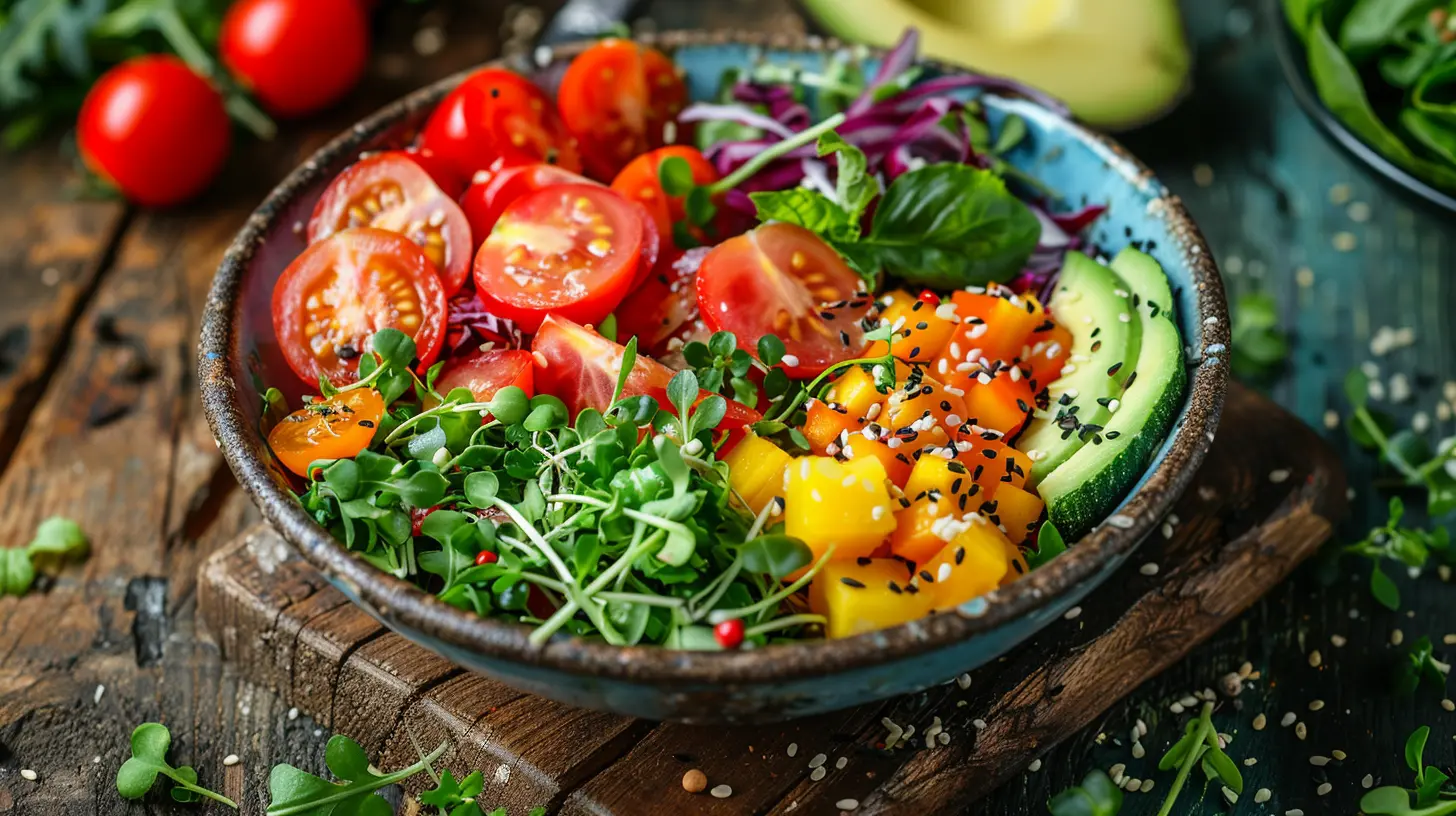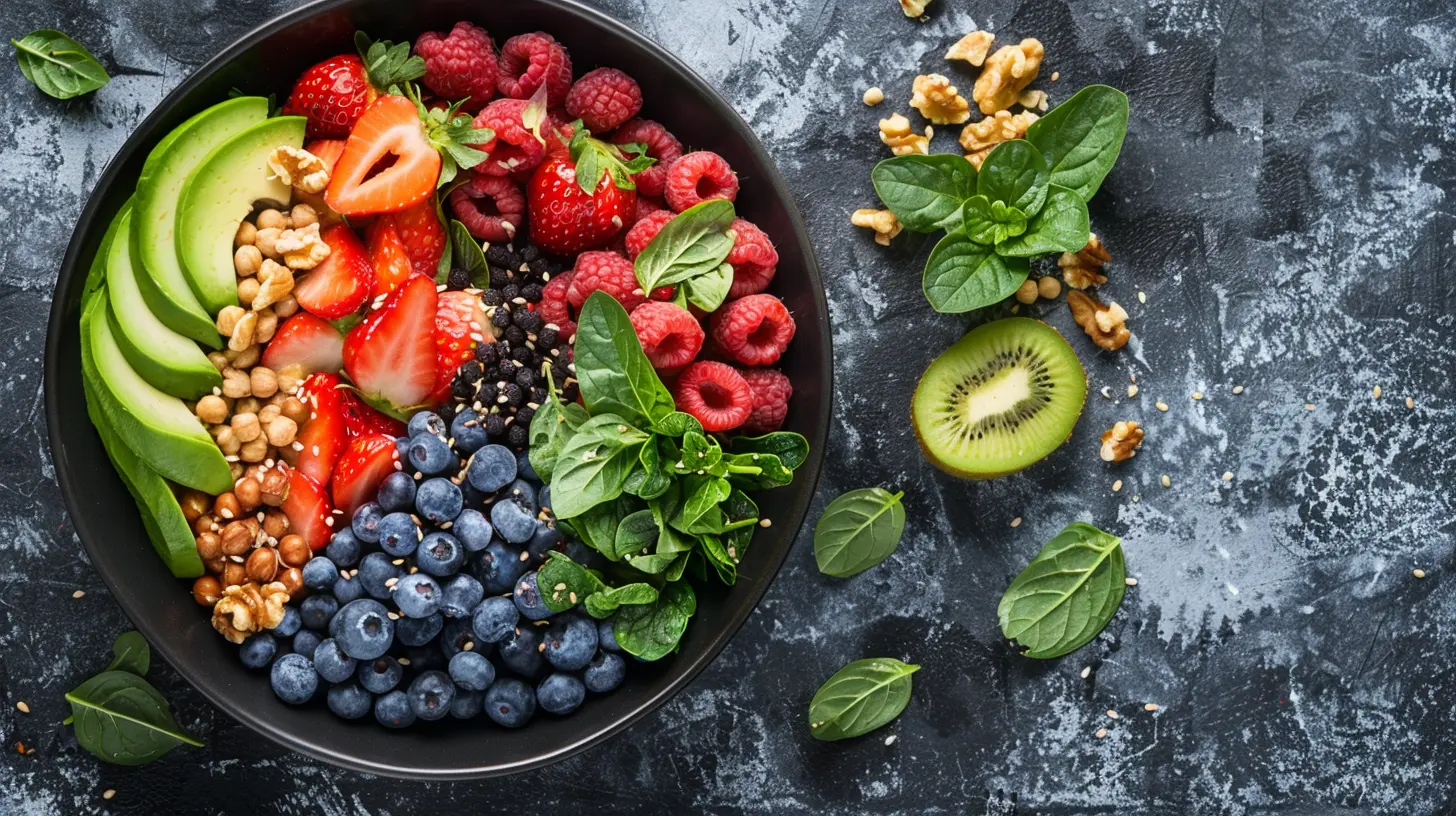Thrive on a Plant-Based Diet: Tips for Couples and Families
21 May 2025
Switching to a plant-based diet as a couple or family is a wonderful way to improve your health, bond over food, and contribute positively to the environment. But let’s be real—making the shift can feel overwhelming at first. What about protein? Will the kids eat it? How do we cook meals that satisfy everyone?
Don’t worry! With the right mindset and a few practical strategies, you and your loved ones can thrive on a plant-based diet while enjoying delicious, nutrient-packed meals. Let’s dive into how you can make this lifestyle change smooth, fun, and sustainable for everyone in your household.

Why Choose a Plant-Based Diet?
Before we jump into the tips, let’s address the big question—why make the switch? Here are some compelling reasons:- Health Benefits – A plant-based diet is linked to a lower risk of heart disease, diabetes, and obesity. It’s packed with fiber, vitamins, and antioxidants that promote overall well-being.
- Environmental Impact – Eating more plants and fewer animal products helps reduce greenhouse gas emissions, conserves water, and minimizes deforestation.
- Budget-Friendly – Contrary to popular belief, a plant-based diet can be cheaper, especially when focusing on whole foods like beans, lentils, and seasonal fruits and veggies.
- Family Bonding – Cooking and trying new recipes together can be a fun way to strengthen family relationships while exploring exciting flavors.

Tips for Couples and Families Transitioning to a Plant-Based Diet

1. Start Slow – Progress Over Perfection
Let’s be honest—going plant-based overnight may not be realistic for everyone. Instead of an all-or-nothing approach, take baby steps:- Try Meatless Mondays and gradually add more plant-based meals.
- Replace dairy milk with plant-based alternatives like almond, oat, or soy milk.
- Swap out animal protein for plant-based options like tofu, tempeh, lentils, and chickpeas.
Small, consistent changes will make the transition smoother and prevent feelings of restriction.
2. Make It a Team Effort
Getting your significant other and kids on board is key. Instead of enforcing the change, involve them in the process:- Let kids pick veggies at the store—giving them a say increases the chances they’ll eat them.
- Experiment as a couple—cooking together can be a fun date night activity.
- Assign roles—one person can chop veggies while another stirs the pot. Encouraging teamwork makes meals more enjoyable.
3. Focus on Nutrient-Dense Foods
One common concern about plant-based diets is getting enough nutrients. Rest assured, you can meet all your dietary needs with a well-balanced approach:- Protein – Include beans, lentils, quinoa, tofu, tempeh, and nuts in your meals.
- Iron – Pair iron-rich foods (spinach, lentils, chickpeas) with vitamin C sources (citrus fruits, tomatoes) to enhance absorption.
- Calcium – Get it from fortified plant milks, leafy greens, almonds, and tahini.
- Omega-3s – Add flaxseeds, chia seeds, walnuts, and algae-based supplements if needed.
- Vitamin B12 – Since B12 is mainly found in animal products, consider a supplement or fortified foods.
4. Keep Meals Simple and Flavorful
You don’t need to be a gourmet chef to enjoy plant-based meals. In fact, simple meals can be the most satisfying. Consider these easy and tasty meal ideas:- Stir-fries with tofu, colorful veggies, and brown rice.
- Chili made with beans, tomatoes, and lots of warming spices.
- Pasta dishes with whole grain noodles, fresh veggies, and a rich tomato sauce.
- Smoothie bowls packed with fruits, nuts, and plant-based protein powders.
Spices and seasonings are your best friends—garlic, cumin, turmeric, paprika, and fresh herbs can turn any meal from bland to bold.
5. Meal Prep for Convenience
Life gets busy, but meal prepping can save the day. Dedicate a few hours each week to:- Batch-cook grains like quinoa, brown rice, or farro to use in multiple meals.
- Chop veggies and store them in the fridge for quick stir-fries and salads.
- Prepare protein sources like marinated tofu, lentil patties, or hummus in advance.
Having ready-to-go ingredients will make it easier to stick to plant-based eating even on hectic days.
6. Find Plant-Based Alternatives You Love
Sometimes, you just crave a familiar taste. Luckily, there are tons of incredible plant-based swaps:- Love burgers? Try black bean or lentil patties.
- Can’t give up cheese? Nutritional yeast, cashew-based sauces, and store-bought vegan cheeses work wonders.
- Miss milk? Almond, oat, soy, and coconut milks are creamy and delicious.
- Egg substitutes? Use flaxseeds, chia seeds, or mashed bananas in baking.
You’ll be surprised at how many plant-based versions taste just as good—if not better—than their animal-based counterparts.
7. Handle Social Gatherings with Ease
Eating plant-based at family gatherings, restaurants, or parties doesn’t have to be awkward. Here’s how to make it work:- Scan the menu ahead of time—most places offer plant-based dishes or are willing to accommodate.
- Bring a dish to share at social events—this ensures there’s something you can eat (and might impress others too!).
- Communicate kindly—if family or friends ask questions, keep the conversation positive and stress that you’re doing what feels right for you.
8. Make It Fun for Kids
If you have little ones, the key to getting them excited about plant-based eating is making it fun:- Turn meals into art—create smiley faces with fruit or veggie animals on the plate.
- Experiment with dips—hummus, guacamole, and nut butters make veggies more exciting.
- Give foods fun names—call broccoli “tiny trees” and smoothies “power potions.”
Children are more likely to embrace new foods when eating feels like an adventure!
9. Stay Inspired with New Recipes
One of the best ways to stick with a plant-based lifestyle is to keep it exciting. Follow plant-based food blogs, watch cooking videos, and experiment with global cuisines. Some cuisines that naturally lean plant-based include:- Mediterranean – Think hummus, falafel, and fresh salads.
- Indian – Lentil curries, spiced chickpeas, and veggie-packed dishes.
- Mexican – Bean tacos, guacamole, and rice bowls.
- Thai – Coconut curries, tofu dishes, and vibrant stir-fries.
Exploring new flavors keeps things fresh and prevents boredom.
10. Be Kind to Yourself
Transitioning to a plant-based diet is a journey, not a race. Some days will be easier than others, and that’s okay! Instead of aiming for perfection, focus on making progress. Celebrate small wins, whether it’s trying a new plant-based recipe or discovering a new favorite meal.The more you embrace the journey with an open heart, the more enjoyable it becomes.

Final Thoughts
Switching to a plant-based diet as a couple or family is one of the best decisions for your health, the planet, and your taste buds! With a little planning, creativity, and teamwork, you’ll find that plant-based eating isn’t just nutritious—it’s downright delicious and fulfilling.So go ahead, start small, experiment with new foods, and enjoy this exciting lifestyle change together. Your future selves will thank you!
all images in this post were generated using AI tools
Category:
Plant Based DietAuthor:

Jackson Mahoney
Discussion
rate this article
3 comments
Natalia McGrath
This article beautifully highlights the joys and benefits of a plant-based diet for couples and families. It's heartening to see practical tips that can foster health and togetherness. Well done!
May 22, 2025 at 2:51 AM

Jackson Mahoney
Thank you for your kind words! I'm glad you found the tips helpful for fostering health and togetherness.
Megan Acevedo
This article offers valuable insights for couples and families considering a plant-based diet. The practical tips provided not only promote healthy eating but also foster togetherness in meal planning and preparation. Thank you for sharing such helpful guidance!
May 21, 2025 at 2:46 PM

Jackson Mahoney
Thank you for your kind words! I'm glad you found the tips helpful for promoting health and togetherness. Happy cooking!
Patrick Luna
Unlock hidden wellness secrets together—dare to explore plant power.
May 21, 2025 at 4:43 AM

Jackson Mahoney
Absolutely! Embracing plant power together can lead to amazing wellness discoveries. Let's dive in!



